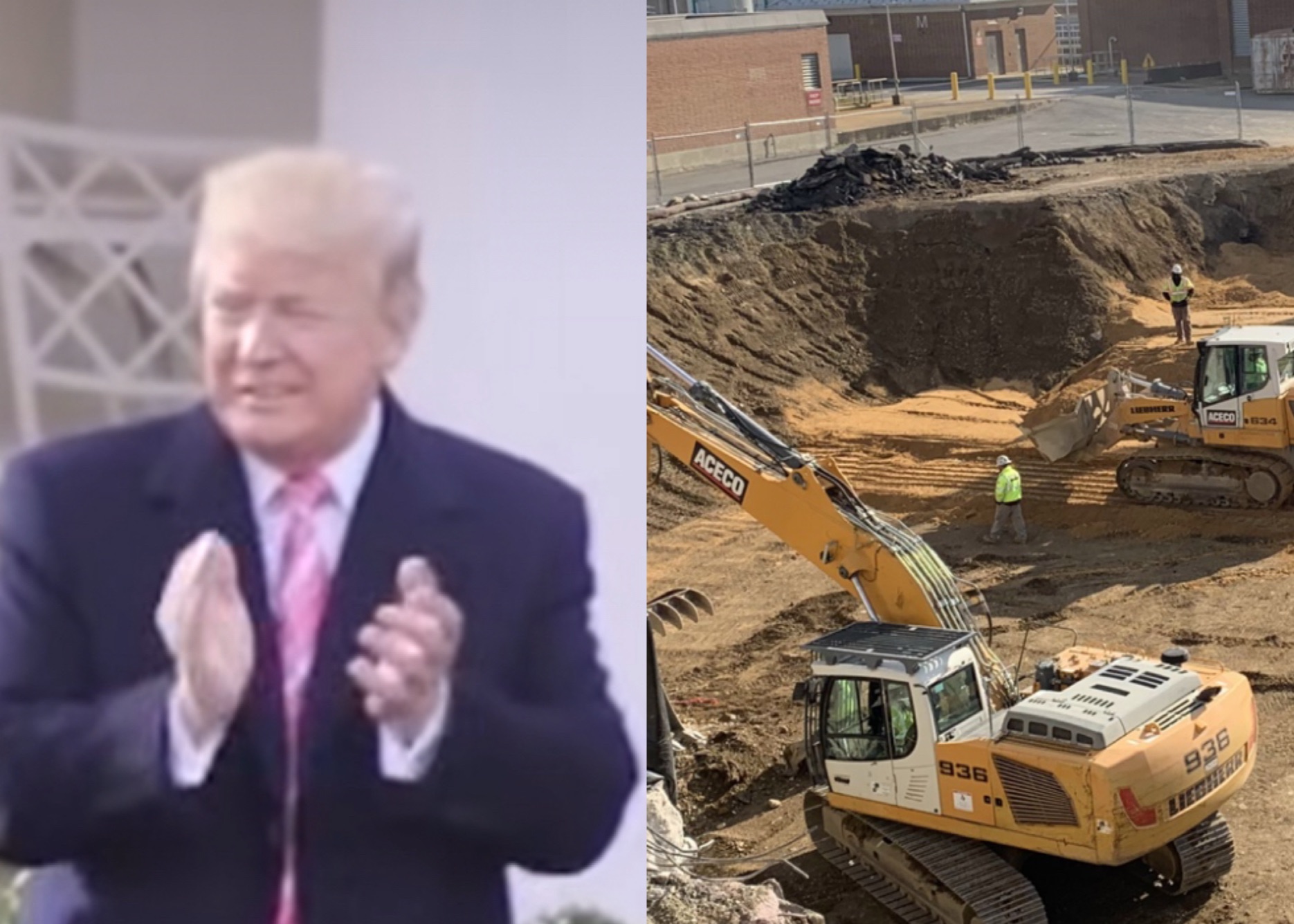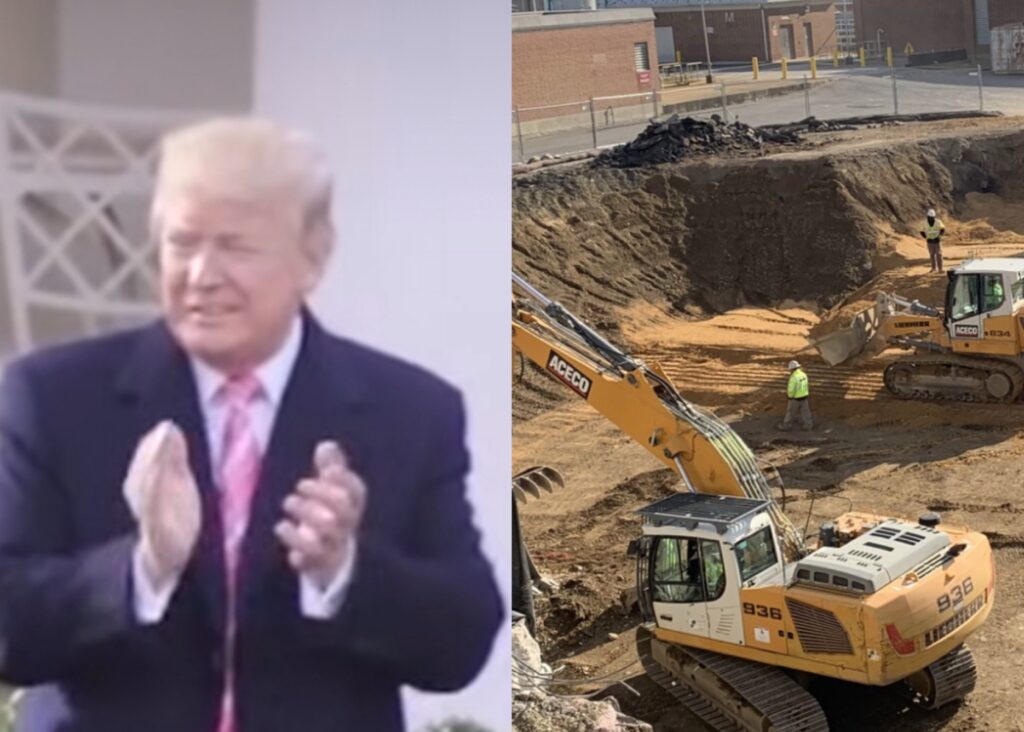NFL
No Payment Dispute with ACECO, White House and Donald Trump’s Spokesperson Confirms despite Multiple Lawsuits from the Demolition Company and Supreme Court’s Emergency Injunction

No payment dispute with ACECO, White House and Trump spokesperson confirms — even as lawsuits and claims of a Supreme Court injunction swirl
Washington, D.C. — The White House on Friday pushed back against growing public confusion over payments to ACECO, the Maryland-based demolition firm that carried out the abrupt razing of the White House East Wing, saying there is “no payment dispute” with the company — a statement that comes amid multiple legal actions by ACECO and unverified online claims that the Supreme Court has issued an emergency injunction involving the matter.

A White House spokesperson reiterated the administration’s position that the project and its financial arrangements are lawful and under control. Media reporting quoting the spokesperson emphasized that the White House does not consider there to be any outstanding payment conflict with ACECO.
ACECO’s actions and public fallout
In the weeks since crews demolished the East Wing to make way for the administration’s planned ballroom project, ACECO has become the focus of intense scrutiny. The company temporarily took parts of its public presence offline amid widespread criticism over the demolition and safety concerns, and at least some accounts indicate ACECO has taken legal steps related to payment and contract disputes. Fact-checking outlets and local reporting have catalogued ACECO’s complaints that they were not paid as agreed and alleged contractual breaches.
That sequence — demolition, unhappy public reaction, and competing statements about whether payments were settled — has left observers with conflicting narratives. On one side, ACECO (through social media and filings reported by multiple outlets) has signaled legal pushback; on the other, the White House has repeatedly asserted it has authority to proceed and maintains there is no payment dispute.
The Supreme Court injunction claim: unverified on major outlets
In parallel, social media posts and a number of rapid-sharing threads have claimed the Supreme Court issued an emergency injunction blocking the White House from using taxpayer funds to pay ACECO. Those posts circulated widely on platforms such as Threads and Facebook but, as of this writing, the claim does not appear to be corroborated by major national news organizations or by an official court docket entry available through standard reporting channels. In short: the injunction reports are circulating online but remain unverified by authoritative legal reporting.
Given how quickly misinformation can spread in breaking political stories, independent verification — court filings, official Supreme Court statements, or reporting from established legal correspondents — will be necessary before accepting the injunction claim as fact.
Legal and political implications
If ACECO has filed suit alleging nonpayment or breach, that would typically move the matter into the federal courts where plaintiffs seek monetary relief or other remedies. A genuine emergency injunction from the Supreme Court would be extraordinary: the Supreme Court rarely steps in at an emergency level absent clear legal error or immediate irreparable harm, and it generally acts only after lower court proceedings. Until an actual written order or a reputable report appears, the legal status remains uncertain.
Politically, the dispute raises several questions:
Transparency: Observers and preservation groups have demanded clearer disclosure about contracts, safety compliance (notably asbestos concerns raised by senators and preservationists), and funding sources for the ballroom project. Funding: The White House has said the ballroom would be privately funded, but the role of federal disbursements or reimbursements is a focal point for critics and legal challengers. Reputational fallout: ACECO’s online pullback and the torrent of public criticism have made the contractor a lightning rod; that reputational damage can influence settlements, public-relations strategy, and even congressional oversight.
What to watch next
Official court records or a published order from the Supreme Court — if an injunction exists, those are the primary sources that will confirm it. (So far, major outlets have not published such confirmation.) Any formal filing by ACECO alleging breach or seeking payment — filings in federal court are public and will specify the relief sought and the factual basis. Statements or documents from the White House clarifying the contract terms and payment timeline, and any congressional oversight inquiries that may arise.
Bottom line
At present the White House says there is no payment dispute with ACECO even as the demolition company’s legal complaints and a flood of online claims keep the story in the headlines. Some social posts claim a Supreme Court emergency injunction exists; those claims have not yet been corroborated by major legal reporting or official court records. Readers should rely on authoritative court filings and reputable news organizations for definitive updates as the situation develops.












